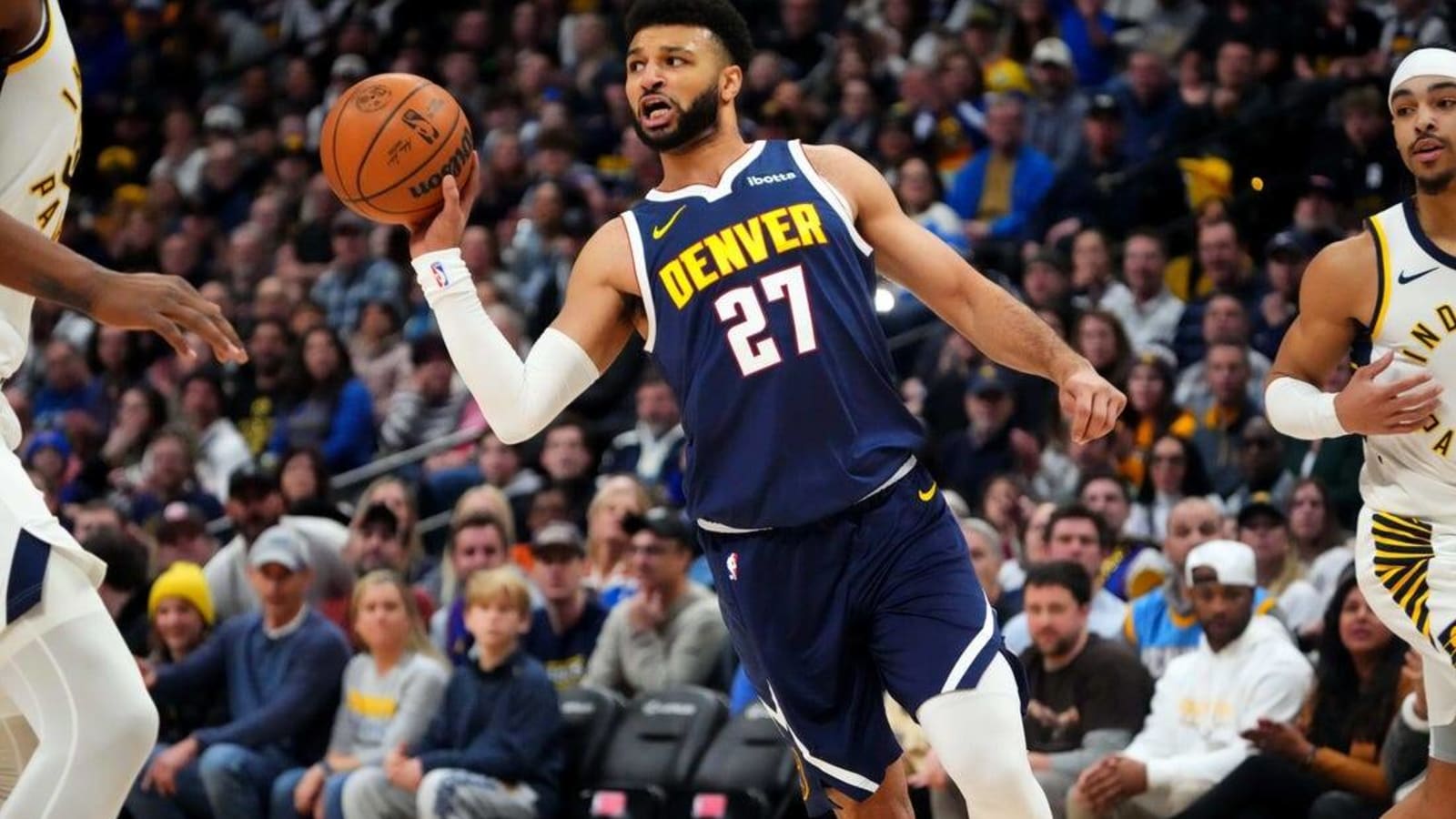Microsoft-Activision Merger: FTC's Appeal And Its Implications

Table of Contents
The FTC's Case Against the Merger
The FTC's core argument centers around antitrust concerns and the potential for competitive harm. They believe the merger would grant Microsoft undue market power, significantly impacting the gaming console market and potentially stifling competition.
-
Antitrust Concerns & Market Power: The FTC argues the combined entity would possess an insurmountable market advantage, particularly in the console gaming market. This concentration of power, they contend, could lead to anti-competitive practices.
-
Call of Duty Exclusivity: A key focus of the FTC's case is the potential for Microsoft to make Call of Duty, one of the world's most popular game franchises, exclusive to its Xbox ecosystem. This move, the FTC argues, would severely harm competitors like Sony PlayStation, causing substantial damage to their market share and potentially driving gamers toward Xbox.
-
Stifling Innovation: The FTC points to Microsoft's history of acquisitions and suggests the Activision Blizzard merger is another step in a pattern designed to eliminate competition and stifle innovation within the gaming industry. The commission fears reduced investment in competing titles and a lack of diverse game development.
-
Higher Prices & Reduced Choice: The FTC's lawsuit alleges that the merger will lead to higher game prices for consumers, a reduction in the variety of available games, and less consumer choice overall. This, they claim, is a direct consequence of decreased competition.
The FTC's legal arguments are supported by detailed economic analyses and market studies which aim to demonstrate the potential anti-competitive effects of the merger. These documents highlight the unique position of Call of Duty within the market and the potential impact of its exclusive availability.
The Judge's Ruling and the FTC's Appeal
A federal judge initially ruled against the FTC's attempt to block the merger, finding the commission hadn't sufficiently demonstrated the likelihood of significant harm to competition. This decision, however, was met with immediate backlash from the FTC, leading to their appeal.
-
The Initial Ruling: The judge's decision emphasized the strength of Microsoft's commitments to keep Call of Duty available on PlayStation, along with other platforms, thereby mitigating concerns about exclusivity.
-
Reasons for the Appeal: The FTC disagreed with this assessment, believing the judge's interpretation of the potential harm was overly lenient and failed to fully consider the long-term implications of the merger. They appealed the ruling, arguing the judge underestimated Microsoft's potential to leverage its market power.
-
The Appeal Process & Potential Outcomes: The appeal process will involve further legal arguments and potentially a review of the judge's decision by a higher court. The outcome could be a reversal of the initial ruling, upholding it, or potentially leading to a negotiated settlement.
-
Timeline and Implications: The appeals process is expected to significantly delay the completion of the merger. The uncertainty generated by this legal battle affects not only Microsoft and Activision Blizzard but also the broader gaming industry and its investors.
Implications for the Gaming Industry and Consumers
The outcome of the FTC's appeal will profoundly affect the gaming industry and consumers. The possibilities range from a more consolidated market to a continuation of the existing competitive landscape.
-
Game Prices & Subscriptions: The merger's impact on game prices is a significant concern. A less competitive market could lead to price increases for popular titles. Similarly, subscription services might see changes in pricing and content offerings.
-
Call of Duty Exclusivity and Other Titles: The fate of Call of Duty remains central to the debate. Exclusivity would likely shift market share significantly towards Xbox, potentially harming PlayStation and other platforms. Furthermore, the precedent set by Call of Duty could lead to similar strategies for other major franchises.
-
Gaming Innovation & Consumer Choice: The reduced competition resulting from the merger could potentially stifle innovation. Fewer competing companies might mean less investment in new technologies and game genres, leading to a less diverse gaming experience. Consumer choice could also be limited due to reduced variety and potentially higher prices.
-
Overall Market Impact: Ultimately, the long-term effect on competition, innovation, and pricing will significantly depend on the outcome of the FTC's appeal and subsequent legal actions. A favorable ruling for the FTC could set a strong precedent against large-scale mergers with potential anti-competitive outcomes.
Microsoft's Response and Future Strategies
Microsoft has actively defended the merger, arguing it will benefit consumers through increased innovation and broader access to games. They have offered concessions, including long-term agreements to keep Call of Duty on PlayStation, in an attempt to address the FTC's concerns.
-
Microsoft's Defense: Microsoft emphasizes the benefits of the merger, highlighting planned investments in game development and the expansion of Game Pass, their subscription service.
-
Proposed Remedies: Their commitments to maintain Call of Duty availability on PlayStation are crucial to their defense strategy. The longevity and binding nature of these agreements are key factors in the court's consideration.
-
Future Acquisitions: The outcome of this case will heavily influence Microsoft’s future acquisition strategy. A successful appeal by the FTC could make future acquisitions significantly more difficult for the tech giant.
Conclusion
The FTC's appeal of the Microsoft-Activision merger presents a critical juncture for the future of the gaming industry. The outcome will set a significant precedent for future mergers and acquisitions in the tech sector, influencing how antitrust concerns are addressed and the definition of market dominance in the digital age. The potential for Call of Duty exclusivity and its knock-on effects on competition remain at the forefront of this complex legal battle. Understanding the nuances of the Microsoft-Activision merger and the FTC's appeal is crucial for anyone interested in the future of gaming. Stay informed about the developments in this ongoing legal battle and its implications for the gaming industry.

Featured Posts
-
 Nba Playoffs Mitchells 43 Points Power Cavaliers Past Pacers 126 104
May 28, 2025
Nba Playoffs Mitchells 43 Points Power Cavaliers Past Pacers 126 104
May 28, 2025 -
 Eu Tariffs Trump Pushes Back Deadline To July 9th
May 28, 2025
Eu Tariffs Trump Pushes Back Deadline To July 9th
May 28, 2025 -
 The Alejandro Garnacho Transfer Saga Chelseas Bid And Uniteds Decision
May 28, 2025
The Alejandro Garnacho Transfer Saga Chelseas Bid And Uniteds Decision
May 28, 2025 -
 Padres In Atlanta A Crucial Series Against A Resurgent Braves Team Featuring Ronald Acuna Jr
May 28, 2025
Padres In Atlanta A Crucial Series Against A Resurgent Braves Team Featuring Ronald Acuna Jr
May 28, 2025 -
 Alejandro Garnacho Expert Predictions On His Next Move
May 28, 2025
Alejandro Garnacho Expert Predictions On His Next Move
May 28, 2025
Latest Posts
-
 Your Guide To Private Credit Jobs 5 Dos And Don Ts
May 30, 2025
Your Guide To Private Credit Jobs 5 Dos And Don Ts
May 30, 2025 -
 Anchor Brewing Companys Legacy A Reflection On Its Closure
May 30, 2025
Anchor Brewing Companys Legacy A Reflection On Its Closure
May 30, 2025 -
 The End Of An Icon Anchor Brewing Company Shuts Down
May 30, 2025
The End Of An Icon Anchor Brewing Company Shuts Down
May 30, 2025 -
 Private Credit Career 5 Dos And Don Ts For Applicant Success
May 30, 2025
Private Credit Career 5 Dos And Don Ts For Applicant Success
May 30, 2025 -
 Formidable Competitors Jensen Huang On Chinas Ai Progress
May 30, 2025
Formidable Competitors Jensen Huang On Chinas Ai Progress
May 30, 2025
